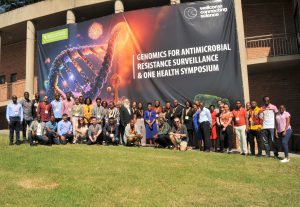The protective effect of adult male circumcision on HIV acquisition was first demonstrated in three randomized trials conducted in South Africa (ANRS study 1265, published in 2005), Kenya (2007) and Uganda (2007). These studies found that the risk of HIV infection was reduced by 60% among circumcised men.
This led the WHO and UNAIDS in 2007 to recommend adult male circumcision as an additional HIV prevention strategy in communities with high HIV prevalence and low prevalence of male circumcision. Several large-scale programs of safe, voluntary male circumcision are currently under way in sub-Saharan African countries like Swaziland, Kenya, Zimbabwe and South Africa. However, there was no evidence on the capacity of these programs to reduce the number of new HIV cases (HIV incidence) and the proportion of HIV-infected people (HIV prevalence).
ANRS study 12126 in South Africa has now provided this evidence, by showing that circumcision effectively curbs HIV infection in men at community level. This study was conducted between 2007 and 2010 in the township of Orange Farm, a community comprising 110 000 adults. Free safe circumcision was offered to all willing male residents over 15 years of age. More than 20 000 circumcisions were performed. The intervention involved community mobilization and outreach as well as a large-scale information provision on prevention, including screening, distribution of condoms, and promotion of sexual and reproductive health.
Between 2007 and 2010, the percentage of circumcised men increased from 16% to 50% in the 15 to 49 age group, peaking at 59% in the 15 to 24 age group. There were no differences between circumcised and uncircumcised men in terms of sexual behavior, notably condom use. In circumcised men, there were reductions of 55% in HIV prevalence and 76% in HIV incidence. This incidence reduction did not differ statistically from that observed in the original three trials. The study also showed that if no man had been circumcised in this community over this period, HIV prevalence would have been 25% higher than it is and HIV incidence 58% higher.
Principal investigator Professor Bertran Auvert notes that "This study demonstrates that adult male circumcision works to reduce the spread of HIV in an African community highly affected by the epidemic. This offers hope in our fight against the infection. Reducing the number of new infections through adult male circumcision will reduce the need for antiretrovirals. This study also shows that the roll-out of safe adult male circumcision should become a top health priority in Southern and Eastern Africa, and that a strong political commitment is needed." Dr Dirk Taljaard, one of the two South African investigators, says "We are changing the social norms of males regarding male circumcision. It makes this intervention sustainable. In addition, we should soon detect a reduction in infection among women."
Professor David Lewis, the other South African investigator, points out that "This study is a fantastic result for a simple intervention which costs 40 Euros, takes 20 minutes and has to be done only once in a lifetime." Male circumcision roll-out is continuing in Orange Farm. The results recorded so far are encouraging for ongoing adult male circumcision programs in Southern and Eastern Africa, provided substantial take-up can be achieved, as in Orange Farm.




